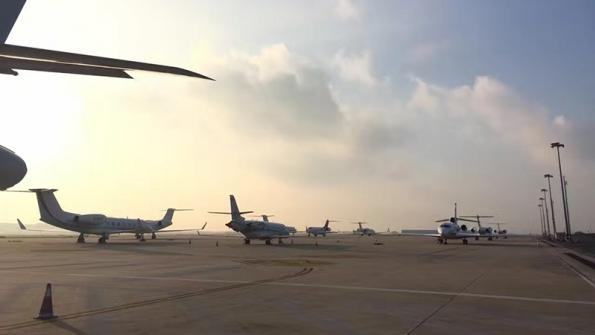Viewpoint: The Unknown Costs Of Private Jet Ownership

Distracted by the cost of buying a business jet, it’s easy for new owners to focus their thoughts on the moment of purchase and not think too much about what happens next.
Owners too often are unaware of the actual running costs of private aircraft. As an industry, we must do more to increase our financial transparency and accountability. And there’s no time like the present.
It’s been great to see new owners entering the market in the past year, often to pursue the indisputable health, safety and efficiency benefits of flying privately during the COVID-19 crisis. And leading industry figures agree this trend will continue during 2021, with data suggesting it is not strictly tied to the pandemic.
We must make sure, then, that these new owners retain their passion for private aviation and understand how to choose the operator or management company that will best manage their asset. We must drive out the current inefficiencies in cost management. Together, we can help owners see the value in their aircraft assets, not just the costs.
Here are five things prospective aircraft owners should know before entering the market:
1. Efficiency leads to “cash in the bank.”
Each time a private aircraft is flown, there will often be 10-15 invoices to process and validate before costs are recovered. The complexities of such a fragmented system, and further inherent inefficiencies in the private aviation sector, mean up to three months can pass between a flight taking place and the payment of invoices. Owners can be left struggling to see a clear picture of total costs. And cash flow planning becomes difficult with so much uncertainty over so many invoices and such a long period of time. Owners can find themselves paying large sums up front without necessarily being sure how that money is being spent.
Chasing invoices alone can cost operators and management companies days of working time each month, time that could be better spent providing and improving core services for owners. When companies can waste less time and money on inefficient processes, those savings can be passed on to owners. And owners themselves would rather be earning money running their own businesses (or relaxing on vacation) than spending time dealing with an excessive flow of invoices.
Inefficiencies cost everyone money. Fortunately, in business aviation, many of those inefficiencies can be removed and there are several operators out there already working smartly.
2. Automation cuts costs.
Automated accounting and invoicing minimize errors and time spent on back-office tasks. Owners aren’t left waiting uncertainly for old-fashioned paperwork to be completed through antiquated processes. Automated invoices can be submitted immediately to owners, minimizing unhelpful cash flow delays between services being provided and payments being made. Optical character recognition (OCR) helps too, speeding up data entry compared to manual inputs and reducing the risk of human error copying information.
The automation of management tasks, benchmarking and cost optimization should be embraced across private aviation, cutting costs for owners and management companies. New owners should ensure their flight department or management company is using the latest technologies to automate administration and maximize procurement effectiveness.
3. Informed financial decisions need accurate data.
For some owners, fragmentation, opacity and outdated processes can make life difficult as they try to establish a clear idea of the actual costs of owning a private jet. Therefore, integrating large quantities of current, verified data into a centralized digital platform makes it possible for stakeholders to make informed predictions about future and unknown events, and provides a more precise picture of costs over time. It also makes transparency from within the industry much more possible.
4. Transparency is critical.
Without ore financial clarity from our industry, owners can easily find spend management a huge challenge. They might be wasting large sums of money and not even know. That’s unacceptable.
Transparency leads to loyalty. Owners trust their management companies and understand their bills. When nothing is hidden, owners grow in confidence, secure in the knowledge their managers are visibly working hard to source and deliver the best deals on the market.
5. Financial efficiency is a right, not a bonus.
New owners--indeed, all owners--should insist on a clear picture of total costs and how those expenses will be benchmarked, rather than focusing solely on the management fee.
Business aviation has proved superbly resilient during the pandemic. To ensure that resilience turns into long-term recovery and prosperity, our industry must become more efficient, transparent and accountable than ever before. Owners deserve nothing less than financial clarity and confidence.

Chris Marich is the co-founder of MySky, an artificial intelligence (AI)-powered spend management platform for the private jet industry.




